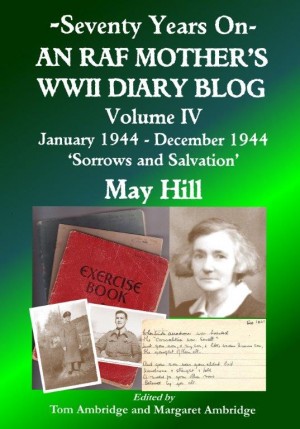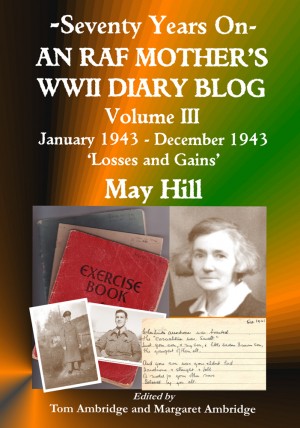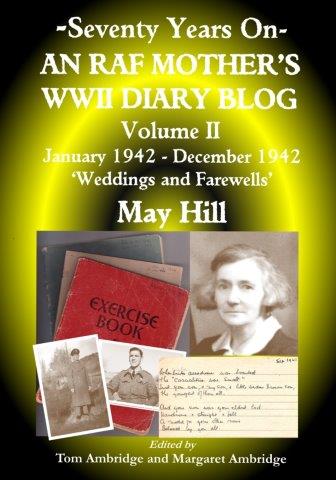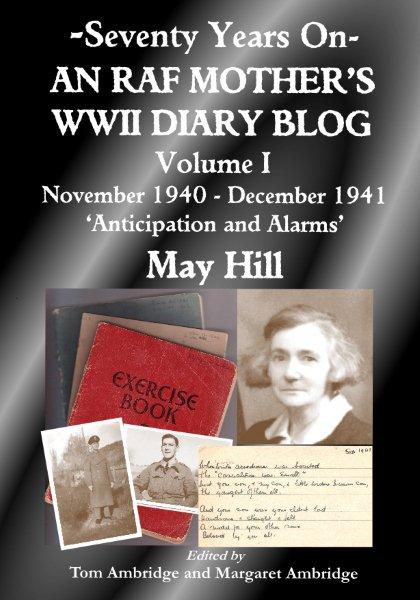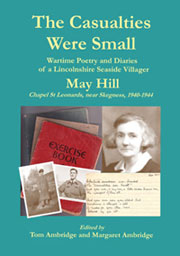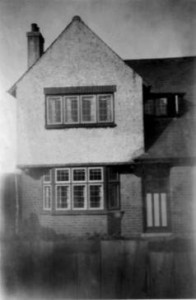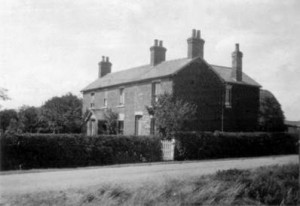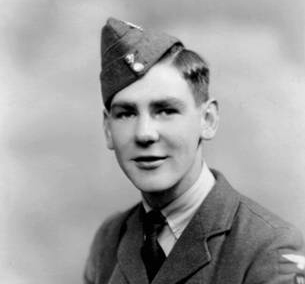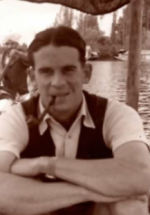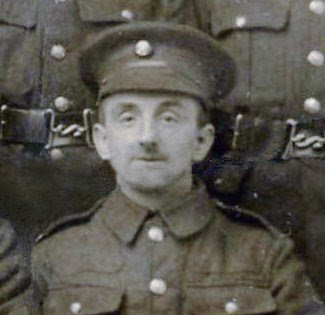Bank Holiday fine, not too hot, but breeze not so cold as it has been lately, also the sun shone most of the day. About 5.20 pm the mist or aar which had hung over the sea all day rolled in and made it damp and chilly. It spoiled the evening but when we went to bed at 10 o’c it had rolled inland and left us clear. It had blotted out the wolds. We could see a big bank of it inland. Some of it, nearer was only a few feet high with tops of trees showing above. It has come back now and is a white fog, can only see just over the road. I think it will only be on the coast. It will be terrible if it is in the fly-bomb area. We cannot seem to stop them, whatever they may say about the numbers shot down and the “lairs” they bomb daily and I fear there are not nearly enough deep shelters in London. Thousands, nay, hundreds of thousands have left, and the summer visitors say it is terrible, the uncanny pilotless planes coming so swiftly and bursting all over the place. Ciss’s visitors have just lost an only son in Normandy and a relative from London came Sun. She brought news that during the week they have been here, their house had all the windows blown out and a newly covered suite cut to ribbons and one wall curved like a bay window. Some of them say that scores of houses that are not actually hit are made unstable on their foundations and are not safe. They are remarkably plucky. One woman staying in vill[age] when told all her windows were blown out amused us by saying, “If I’d have known I would not have cleaned all those windows before I came.”
I think the M.Ps [Members of Parliament] have made a mistake adjourning for 7 weeks. People are sure to think they are scared and have run away from their duty. Roly Grantham says they, F.Bs, not only come straight but turn in their tracks so that you cannot judge where they will end. Whether the one he saw was an isolated case and a freak I don’t know but he is reliable and witnessed a case of one coming over and turning and bursting 2 miles from him. Elsie spent yesterday afternoon with Rene and Tom, they went over to Cumberworth but did not stay to stuffed-chine tea as there was such a crowd. Joyce [Coulston] and Harry Suter came after dinner and Jean and they went to sea for afternoon. They went home about 8 o’c. Jean and I washed a few things in morning most of which got dry tho’ it dried slowly. I took flowers to grave after dinner as Eva came Sun. aft. with Eileen [Faulkner] and Jean and I went to Chapel in eve. and I was too tired after to go. The piece of veronica I planted at the foot is growing. I wonder if Len [Short] will notice when he banks up the grave. My roses are growing, one may even flower and best of all Father’s favourite “Mrs Sara Macready” is showing a definite shoot well up on a twig so it is not a briar. The one that looked quite dead is the one that may flower. The one I am training to a standard is the latest. The ground is covered with apples under the trees but there is a good crop still, but I saw on a branch or two of bramleys the cotton wool of American blight. I painted all I could see with paraffin. The other tree appears to have a blight and has a great quantity of “crumpets”. Most of the other apples on this tree are specked on skin and even the pear-main apples have specks on them and several lots of “crumpets”. These, the crumps, ripen early and Harry, who is tall, reached up for two nice red ones and alas! the wasps had been first or else the blackbirds, there is one who seems to call “fruit fruit” very often.
Jean’s lettuces which she planted out are fine. She has another holiday this afternoon. Gwen went, or rather Per[cy] took her to or near Spilsby Sun for her holiday. We miss her tho’ she is so quiet. Ciss washed and ironed as her vis[itors] went to Sk[egness]. Grace is getting better fast. H[arriet] going to see her today. Rene said she would be here sometime to-day, but I must get on and sew as she won’t be here much this week with Tom on holiday. I cut out a pair of slippers last night, hope to get them done for Mrs Russell. Ration Cards back yest., they have sent emergency cards for two weeks instead of one. Nearly 7 o’c so shall have to soon get up and get Jean off. My gladiolas all growing but only one dahlia. It is nearly in bloom. Turkey has leisurely got down off the fence on our side at last as she sees we are winning. Not at war so far and Bulg[aria] has told Ger they won’t all[ow] them (the Gers) thro’ their territ[ory] if she does declare war. Very brave all at once now Ger is getting whacked.
10.15 pm Same day.
Warmer than yesterday after mist disappeared, thunder and a good shower in evening after which Frank came and cleaned out down spout on house which was blocked with dirt and leaves etc. Philip Ranson has been killed in Italy. Percy very upset I think, he looks so old and ill tonight. Ralph F[aulkner] is home from Normandy wounded in knee. Mav[is] came this afternoon, still looks seedy. Paper today says Scot[land] and N.Eng[land] may be able to dispense with blk.out in about 1 month from now and to have a modified type of street lighting. There are a lot of planes about with that looming drone I hate to hear. Expect it is really the heavy clouds about, but they sound so like evil business threatening us or our enemies, most likely enemies. I think the worst menace for us is over unless he gets those other long-range pilotless planes going.
Roland Grantham was one of Elsie’s brothers.
Harry Suter was the boyfriend (who became the husband) of Jean’s schoolfriend Joyce Coulston.
‘Too tired to go’ (after Chapel) refers to an intended visit to Will’s grave on the Sunday.
Len Short, elder brother of John, was a gardener and the church-yard verger. Len was a Home Guard member(see photo – Diary: 6 June 1944) and an assistant in the Boys’ Brigade. Their sister Freda was a Girl’s’ Life Brigade member (see photo – Diary: 19 June 1944).
Bramley cooking apples and Worcester Pearmain dessert apples were the varieties on the garden trees.
Philip Ranson was the brother of Ciss’s husband Percy.
Have you read an introduction to May Hill & family (includes photographs) and explored ‘The Casualties Were Small’?

